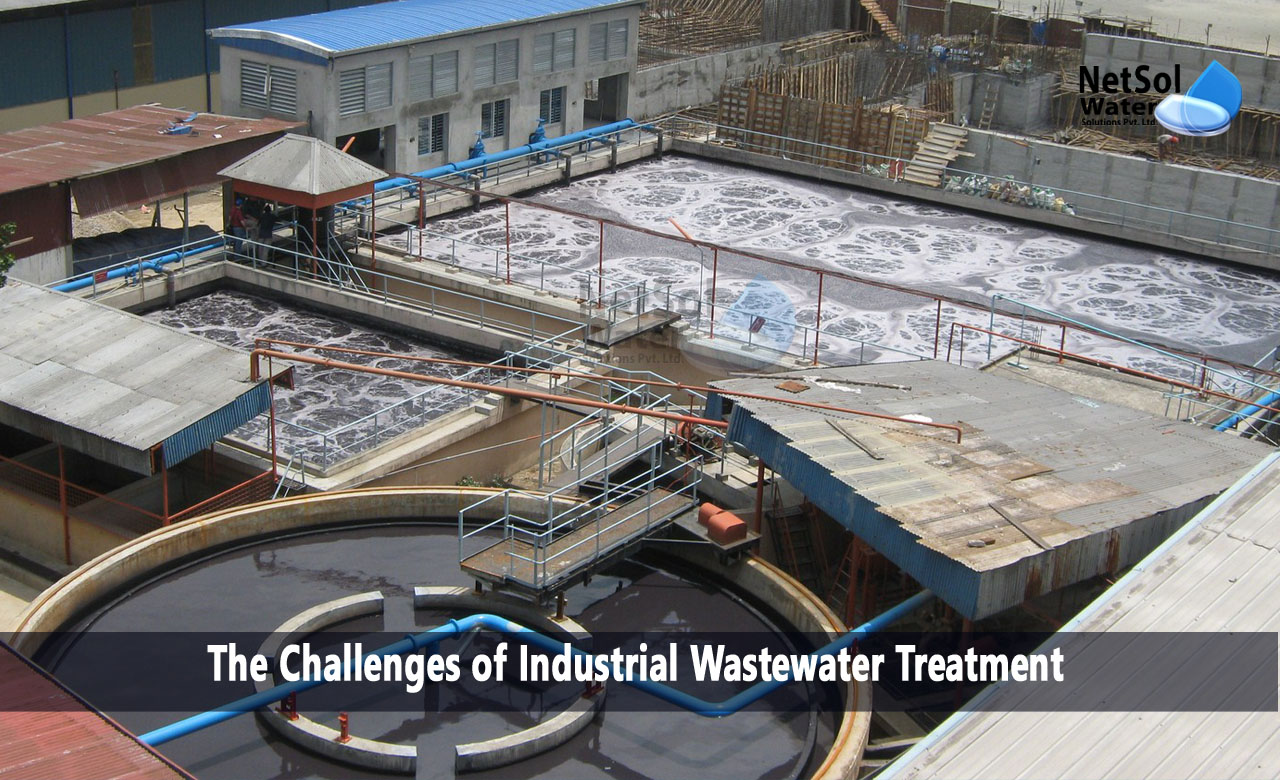What are the Challenges of Industrial Wastewater Treatment?
Industrial wastewater poses unique challenges for treatment due to its complex composition and varying pollutant concentrations. Sewage treatment plants, which traditionally handle municipal wastewater, are increasingly facing the task of treating industrial effluents as well.
Here we will explore the challenges associated with industrial wastewater treatment and gain insights from sewage plants that have successfully addressed these issues. Understanding these challenges is crucial for developing effective strategies to ensure the proper treatment of industrial wastewater and protect the environment.
Challenges:
These are some of the challenges that are being faced in the treatment process:
1. Complex Composition of Industrial Wastewater.
Industrial wastewater originates from a wide range of industries, each with its specific processes and pollutants. Unlike municipal wastewater, which is relatively standardized in composition, industrial effluents can contain high concentrations of heavy metals, organic compounds, toxic chemicals, and other contaminants. Treating such complex wastewater requires advanced treatment processes and tailored approaches to address specific pollutants effectively.
2. Pollutant Removal and Treatment Technologies
Traditional sewage treatment processes are often insufficient for handling industrial wastewater due to the unique contaminants involved. Sewage plants that take on the challenge of treating industrial effluents must incorporate additional treatment technologies. Advanced oxidation processes, membrane filtration, activated carbon adsorption, and ion exchange are examples of technologies employed to remove specific pollutants. These technologies can effectively target and eliminate pollutants that are not adequately removed by conventional treatment methods.
3. Pre-Treatment and Source Control
To minimize the impact of industrial wastewater on sewage treatment plants, pre-treatment and source control measures are essential. Pre-treatment involves pretreating the industrial effluent at the source before it enters the sewage plant. This step aims to remove or reduce contaminants that could interfere with the treatment processes or cause damage to the infrastructure. Source control measures focus on promoting cleaner production practices in industries, reducing the generation of hazardous substances at the source, and minimizing the discharge of pollutants into wastewater streams.
4. Capacity and Hydraulic Load Considerations
Industrial wastewater often comes in large volumes and high flow rates, challenging the capacity and hydraulic load of sewage treatment plants. The influx of industrial effluents can disrupt the balance of microbial communities in biological treatment systems, leading to decreased treatment efficiency and potential process failures. Adequate planning and infrastructure upgrades are necessary to ensure that sewage plants have the capacity to handle increased hydraulic loads and can effectively treat the combined industrial and municipal wastewater.
5. Monitoring and Compliance
Compliance with environmental regulations and discharge standards is crucial in industrial wastewater treatment. Sewage plants treating industrial effluents must implement robust monitoring systems to continuously assess the quality of the incoming wastewater and the performance of treatment processes. Monitoring parameters may include pollutant concentrations, pH levels, biological oxygen demand (BOD), chemical oxygen demand (COD), and toxicity levels. Timely and accurate monitoring helps ensure compliance, facilitates troubleshooting, and enables prompt corrective actions to maintain efficient treatment operations.
6. Collaboration and Knowledge Exchange
Successfully addressing the challenges of industrial wastewater treatment requires collaboration and knowledge exchange between sewage plants, industries, regulatory bodies, and research institutions. Sharing experiences, best practices, and technological advancements can foster innovation and improve the overall performance of industrial wastewater treatment. Collaboration also plays a crucial role in developing tailored approaches for specific industries and promoting sustainable water management practices across sectors.
Summary
Treating industrial wastewater presents significant challenges for sewage treatment plants, necessitating specialized approaches and technologies. The complex composition of industrial effluents, the need for advanced treatment processes, pre-treatment measures, hydraulic load considerations, compliance monitoring, and collaboration are key factors to consider when addressing these challenges.
By leveraging insights from sewage plants that have successfully tackled industrial wastewater treatment, we can develop effective strategies to safeguard the environment, protect public health, and promote sustainable industrial practices.
Leading manufacturer of sewage treatment plants in India.
Netsol Water is Greater Noida-based leading water & wastewater treatment plant manufacturer. We are industry's most demanding company based on client review and work quality. We are known as best commercial RO plant manufacturers, industrial RO plant manufacturer, sewage treatment plant manufacturer, Water Softener Plant Manufacturers and effluent treatment plant manufacturers. Apart from this 24x7 customer support is our USP. Call on +91-9650608473, or write us at enquiry@netsolwater.com for any support, inquiry or product-purchase related query.



